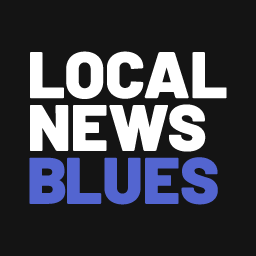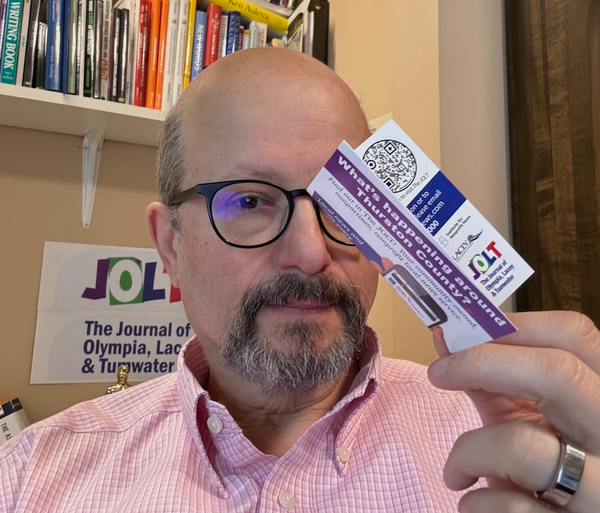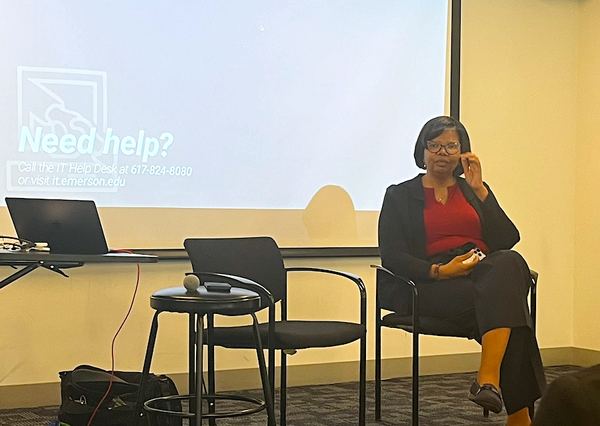“We can’t fund them all.” Really?
Let's talk money pie.

During his travels in the nascent United States, Alexis de Tocqueville was struck by the number of newspapers on offer. “In America there is scarcely a hamlet which has not its own newspaper,” he wrote in Democracy in America Vol. 1.
Apparently, MacArthur Foundation President John Palfrey thinks that’s still true.
“I’m just thinking about my home state of Massachusetts [with] 351 cities and towns,” Palfrey said during a panel discussion of Press Forward at the recent International Symposium for Online Journalism held in Texas. “We can’t evaluate much less sort of pay into every one of those communities, right?”
In fact, with its $500 million pot, Press Forward has enough money to send $25,000 to every incorporated city, town and village in the United States — but that’s not necessary, because most news outlets cover multiple areas. Athens County, Ohio, has 14 townships, eight villages, five census-designated places and two cities — all of which are covered by my outlet, the Athens County Independent.
But for argument’s sake, let’s look at news sources by county. According to Medill, about 1,766 U.S. counties have either no local news outlet or have only one, usually a weekly. With $500 million, Press Forward could give each of those counties $283,125.
Instead, it is directing huge sums of money to for-profit enterprises that do not produce journalism but make money from it (Blue Lena, Automattic, Rolli) and to organizations that advocate for public policy that doesn’t necessarily help local independent publishers (Rebuild Local News). If Press Forward can’t fund us all, it’s not because they don’t have the money; it’s because they have made a deliberate choice to fund other things.
And they have chosen to fund those things without asking a single local operation what it needs or wants (as far as I know — if there was a survey, I haven’t heard of it).
And therein lies the rub. To me, the central problem with Press Forward isn’t whether local news operations will get a big enough share of the pie. It’s how the pie was made.
When you’re preparing ingredients for a pie, you have to taste the fruit. If it’s too tart, you add some sugar; if it’s too sweet, you add a hit of lemon juice. Folks fuss about the crust, but even the best crust can’t save a poor filling.
Apparently, Press Forward’s priorities seem to have been developed without asking actual working journalists what we need. They didn’t taste the fruit and then expected us to happily gobble up the pie without complaint.
It’s too late to adjust the filling now, but Press Forward has ways to save the result — by including those of us who are doing the work.
Last fall, Press Forward announced that it was forming an advisory board “to help guide and shape the strategic goals of this national initiative.” No such board has yet been announced. The description of the plan — to include “experts and practitioners working in journalism and/or the democracy field” — leaves plenty of room to pack the table with association leadership, media executives and J-school faculty instead of working journalists. It could wind up like a government education task force that doesn’t include a single teacher.
At ISOJ, Palfrey and Press Forward Director Dale Anglin both said they’ve been traveling all over to spread the word about Press Forward and Press Forward Local. Anglin will be a key speaker at the Appalachian Funders Network Gathering in West Virginia next week.
I’ll be there, too, as part of a panel on community news ecosystems. I hope I get to meet her. I’ll thank her for educating philanthropy in central Appalachia on the importance of supporting local news.
And I’ll ask her when Press Forward will publicly engage with the people who actually do the work — not one-on-one, not at a conference, but in a way that allows us to more directly advise the initiative that is supposed to save us.
The Press Forward pie has already been served, and it’s clear that local news isn’t going to get the biggest piece — not because there isn’t enough, but because Press Forward invited others to partake. The best local news folks can hope for now is a greater say in who gets served.
Corinne Colbert is cofounder and editor in chief of the Athens County Independent, a nonprofit digital news startup in southeastern Ohio. (Her opinions shared through Local News Blues are her own, not the Independent’s.) Read more at the Local News Blues contributors page.
Find all Local News Blues posts right here.





